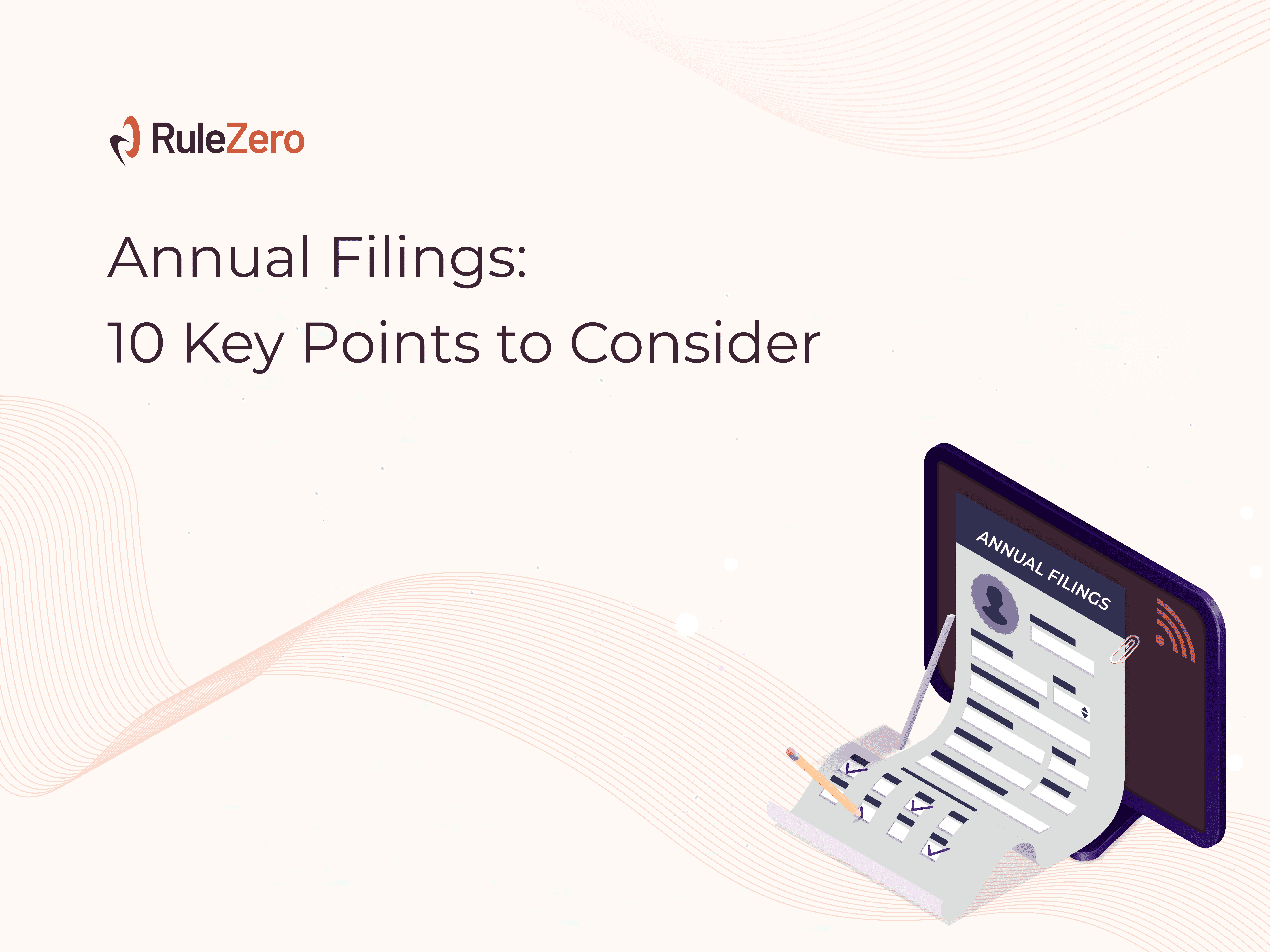Key points to note when making annual filings of private limited companies
All companies incorporated as a private limited company must make its annual filings under the Companies Act, 2013. The information presented in the filings must be accurate and in line with all applicable secretarial and statutory laws/rules. The information must also be backed by proper documentation maintained by the company. Failure to do this will result in payment of penalties. In recent times, there have been many incidents where the ROC has come down hard on companies for non-compliance.
To name a few:
- The company has not filed its financial statements within the due date.
- There is a difference in the authorized capital mentioned between the MCA records and the annual returns filed in Form MGT-7.
- Non-appointment of a whole-time company secretary in companies that have a paid-up capital of more than 10 crores.
As operations and corporate governance of the company are in your hands, you should always stay on top of things and oversee activities to make sure the company is in compliance with the rules and regulations of the Companies Act.
To help you with this, we have listed down the top 10 points to note when making annual filings
- Notice to AGM- Since the annual filings are triggered from the date the company holds its AGM, ensure the meetings for annual filings like AGM are duly held by giving proper notice to shareholders.
- Statutory compliance check– Keep in mind all compliances linked to AGM- For example, if the company has to appoint/reappoint auditors, regularize casual vacancies etc, then make sure this is covered as part of the agenda of the AGM.
- Be an early bird- Start preparing documentation as early as possible. Do not wait for the end due date.
- Keep your consultants notified- Keep your advisors, consultants like CS, and CAs in the loop in advance so they can appropriately advise.
- Consistency is the key- Uniformity of information across all filings and documents attached. For example, make sure the date of the meetings held, CIN, director information, and numbers in the forms are consistent.
- Practice mindfulness- Be mindful as all filings are available for public downloads once filed. Anybody can download the public documents of a company by paying a fee on the MCA portal.
- Validate all numbers- All data should be properly validated and backed by required documentation under law. Ensure all your registers, books of accounts, tax returns, bank statements, etc., are readily available and the filings have been prepared from the information in such documents.
- Don’t ignore the financial statement– A key section in both the audit and board report is the company’s financial statement. Pay special attention when filing the financials.
- Filing format– Understand which filings are applicable (like, XBRL or non XBRL, MGT7 or MGT7A, CFS form, MGT 8 etc.). Also, make sure that the numbers shown in the annual filings are based on actuals and not fully diluted or as if converted basis.
- Reliable Reporting- Ensure the board report is prepared with proper diligence and care.
Since the filings are made every year, make sure to set the right standards in place at the very beginning to have good operational efficiency.










